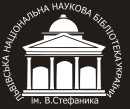DOI: https://doi.org/10.37222/2524-0331-2019-9(27)-20
Nadiya Holubinka, Oksana Lytvyn
Determinology process in the literary-critical studies of Mykola Yevshan
Abstract:
The individual style of Mykola Yevshan is characterized by the scale of artistic thinking, intellectualism, philosophical depth, a high degree of emotional-semantic capacity and dynamic character of imagery. This article aims to analyze how Mykola Yevshan conveyed his ideas through the means of language, specifically, a scientific terminology; to show (1) as a term, beyond its terminological field, it loses, in whole or in part, its features of definition; (2) as a term, it lost only the terminological field but retained its definition in the author’s text. Our study is relevant because the phenomenon of «determinization» has yet to be studied based on the works of literary criticism of MykolaYevshan. We employed the following interrelated methods: dynamic and descriptive in their varieties (linguistic observation, comparison, and generalization), typological and definitive. The findings of our research prove that Mykola Yevshan used the terms of different fields of knowledge. Articles in literary criticism create a terminological field for literary terms, and terms that have lost their terminological field, having retained their definition, have undergone functional determinization. Stylistically motivated is the combination of scientific terms with spoken vocabulary, which gives the context both negative and positive semantic connotations; the author’s text reflects the occurrence of terms in the composition of the tropes. The process of determination defines the constant linguistic development, the interpenetration of terminological and non-terminological vocabulary.
Keywords: terminology, determinology, literary criticism, Mykola Yevshan.
References:
- Yevshan, M. (1998). Borotba generatsii i ukrainska literatura, Krytyka; Literaturoznavstvo; Estetyka, uporiad. N. Shumylo, Kyiv, Osnovy, рр. 45—54. (in Ukr.).
- Yevshan, M. (1998). Henrikh fon Kliaist i nimetska literatura, Ibid, pp. 363—370. (in Ukr.).
- Yevshan, M. (1998). Ivan Franko, Ibid, pp. 135—153. (in Ukr.).
- Yevshan, M. (1998). Kudy my pryishly, Ibid, pp. 247—275. (in Ukr.).
- Yevshan, M. (1998). Lesia Ukrainka, Ibid, p. 153—160, 561—563. (in Ukr.).
- Yevshan, M. (1998). Mykhailo Yatskiv, Ibid, pp. 168—175. (in Ukr.).
- Yevshan, M. (1998). Oleksa Kovalenko, Ibid, pp. 563—565. (in Ukr.).
- Yevshan, M. (1998). Peredmova do knyzhky A. Tovkachevskoho «Utopiia i diisnist». Zbirka statei, Ibid, pp. 75—79. (in Ukr.).
- Yevshan, M. (1998). Pisnia pro Moiseya (Studiia nad tvorom I. Franka), Ibid, pp. 435—443. (in Ukr.).
- Yevshan, M. (1998). Problemy tvorchosti, Ibid, pp. 12—18. (in Ukr.).
- Yevshan, M. (1998). Relihiya Shevchenka, Ibid, pp. 25—30. (in Ukr.).
- Yevshan, M. (1998). Sandro Bottichelli, Ibid, pp. 349—354. (in Ukr.).
- Yevshan, M. (1998). Suspilnyi i artystychnyi element u tvorchosti, Ibid, pp. 18—25. (in Ukr.).
- Yevshan, M. (1998). Taras Shevchenko, Ibid, pp. 79—119. (in Ukr.).
- Yevshan, M. (1998). Fylyp Mysko, Ibid, pp. 523—526. (in Ukr.).
- Yevshan, M. (1998). Shevchenko i my, Ibid, pp. 30—33. (in Ukr.).
- Yevshan, M. (1998). Yurii Fedkovych v svitli novykh materialiv, Ibid, pp. 126—135. (in Ukr.).
- Yevshan, M. (1998). Fiat Ars! (Na vichnu pamiat Lesi Ukrainky), Ibid, pp. 164—166. (in Ukr.).
- Yevshan, M. (1998). «Suprema lex» (Slovo pro kulturu ukrainskoho slova), Ibid, pp. 58—64. (in Ukr.).
- (1999). Novyi tlumachnyi slovnyk ukrainskoi movy: u 4 t., Kyiv, Akonit, T. 1—4. (in Ukr.).
- Pavlychko, S. D. (1997). Dyskurs modernizmu v ukrainskii literaturi: monohrafiia, Kyiv, Lybid, 357 p. (in Ukr.).
- Superanskaya A, Podolskaya, N. & Vasyleva, N. (2012). Obshchaya termynologiya: voprosy teorii, Moskva, Knyzhnyi dom «Lybrokom», 248 p. (in Rus.).
